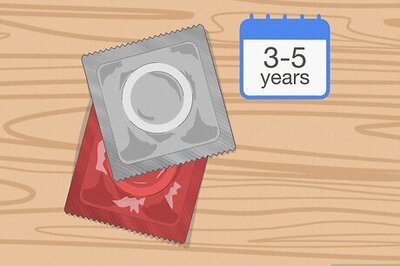
views
Being Understanding and Empathetic

Include this person in the planning. Whether you’re planning an outing, a group trip or going in on a gift for someone, make sure to include this person from the beginning. If they are a part of the planning, they’ll be able to tell you what their budget is and what they are able to contribute. For example, let your cheap sibling be the first to know if you’re thinking of doing a group gift for your parents. If they want a less expensive option, they are able to suggest ideas themselves.

Be understanding. If you had an expensive gift in mind that you’re set on, realize it may be a priority to you, but not to the other people involved. Understand that they may not be willing to contribute as much financially to the gift, but allow them to put in what they can and help in other ways (like organization and communication). Understanding lessens feelings of resentment for everyone involved.

Set expectations. Sometimes, people are unaware that they are doing something wrong. Maybe they assumed an invitation out meant an offer to pay as well. Make sure when you plan to hang out with this person that you set clear expectations from the beginning. If you're eating out together, ask your server for separate checks at the beginning of the meal. If you're going out as a group, let everyone know in advance that the bill will be split equally per person. If you're hosting a "bring your own [fill in the blank]" party, let the person know everyone is expected to bring something. If they’re prepared upfront, they don’t have an excuse for cheap behavior. If expectations have been set, and the behavior continues, you may have to confront the problem directly.

Seek out affordable or free things to do. If the cheap person you’re dealing with is a good friend or family member, avoiding them isn't an option. It’s not about what you’re doing, but who you’re doing it with. Plan low or no-cost activities with your cheap friend. Take a hike or some other physical activity. Watch a movie at home. Go to a park. Cook together. Look up free things to do near your city.

Be a generous gifter. If you want to do something with this person that you don’t think they'll be willing to pay for, consider giving it to them as a gift. This gives you the opportunity to enjoy time with your loved one without money becoming an issue. Let’s say you’ve always wanted to take a trip with this person, but you know they won’t include it in their budget. Treat them to a short getaway for their birthday. This takes the pressure of money off of both of you. It is important that you don’t expect an equivalent gift in return. Your friend can give you a thoughtful gift without spending the same amount of money. Don’t let yourself get too hung up on price tags.

Avoid going out with this person. If the cheap person is a colleague or an acquaintance, your best option may be to avoid going out with them altogether. You’ll be a more pleasant co-worker if you’re not carrying resentment. Suggest bringing your lunches from home and eat together in the breakroom. Tell them you need to save money, and aren't able to go out.
Discussing the Issue

Plan your approach. Confronting people about money related issues can be difficult. Preparing yourself in advance will result in the best outcome. Know what you’ll say in advance. This prevents you from going on and on, straying off topic or saying things you don’t mean. It's always important to go into that conversation with an understanding of why this is important for you. For example, how do you feel when interacting with this cheap person? What does it trigger in you?

Have a solution prepared. You're not calling out your friend just to make them feel bad. The best way to get a solution, is to suggest one yourself. You can try, “We’ll take turns choosing where we go. You can choose the next outing.” Reassure them that you don’t have to spend money to have fun together.

Visualize an ideal outcome. Go through the conversation in your head. Include how you think they’ll respond. Picture the positive outcome that you hope to get from the confrontation. If thinking about confronting this person brings up negative emotions, you may not be ready to confront them yet.

Be ready for anything. Confrontations, no matter how tactful, don’t always end well. Prepare for a stubborn friend to get angry or remain in denial. Know how you’ll respond if the confrontation takes a bad turn.

Confront the person while calm. Emotional confrontations rarely go well. If you allow yourself to get upset and start lecturing the person, they are likely to respond emotionally simply because of your approach.

Don’t talk down. When stating your complaint, don’t include your opinions or judgements. It comes off as condescending.

Address the behavior only. You don’t want this person to feel like you are insulting their character. Stay focused on the unwanted behavior, not the person.

Use “When you, I feel” statements. A helpful technique often used in therapy is “When you [unwanted action], I feel [emotional response]” statements. This approach allows the person to see the direct effects of their behavior. It also shows that you are coming from a genuine place of hurt, not simply complaining about them. For example, “When you never offer to pay for the check, I feel like you don’t value our friendship.” Or, “When you ‘forget your wallet’ every time we hang out, I feel like I’m being taken advantage of.”

Reevaluate the relationship. If you’ve approached the problem with maturity and tact and still get bad results, then consider whether this person is a positive addition to your life. If you still consider this person a valuable part of your life, then you must learn how to cope with this problem in your life long term. If this person brings nothing but negativity and hardship to your life, then end communication with them. You can rest assured that you did your part in trying to resolve the problem.



















Comments
0 comment